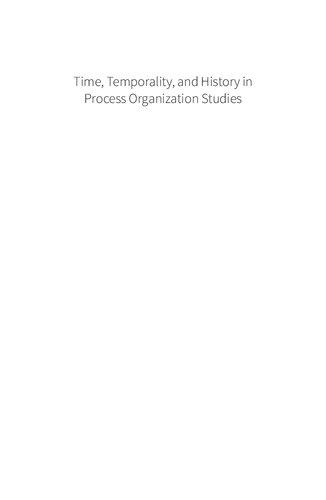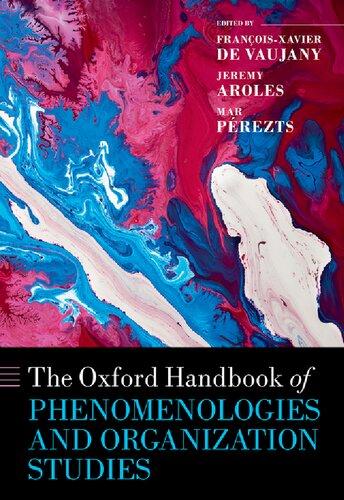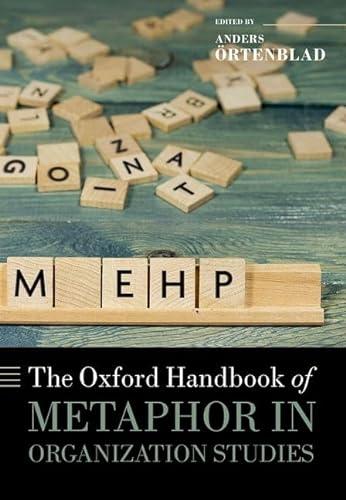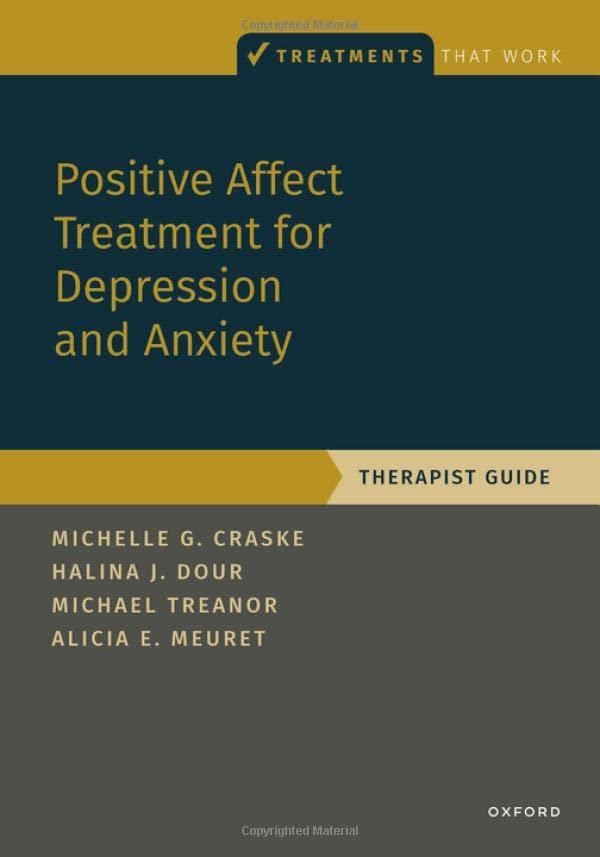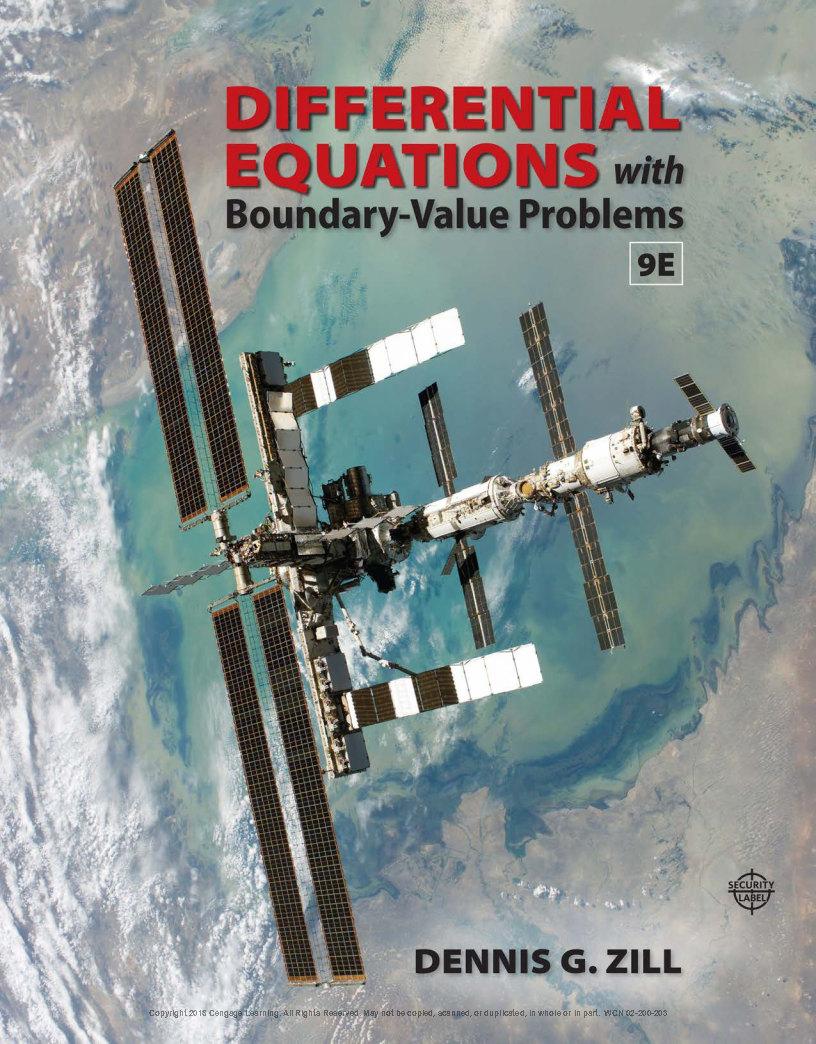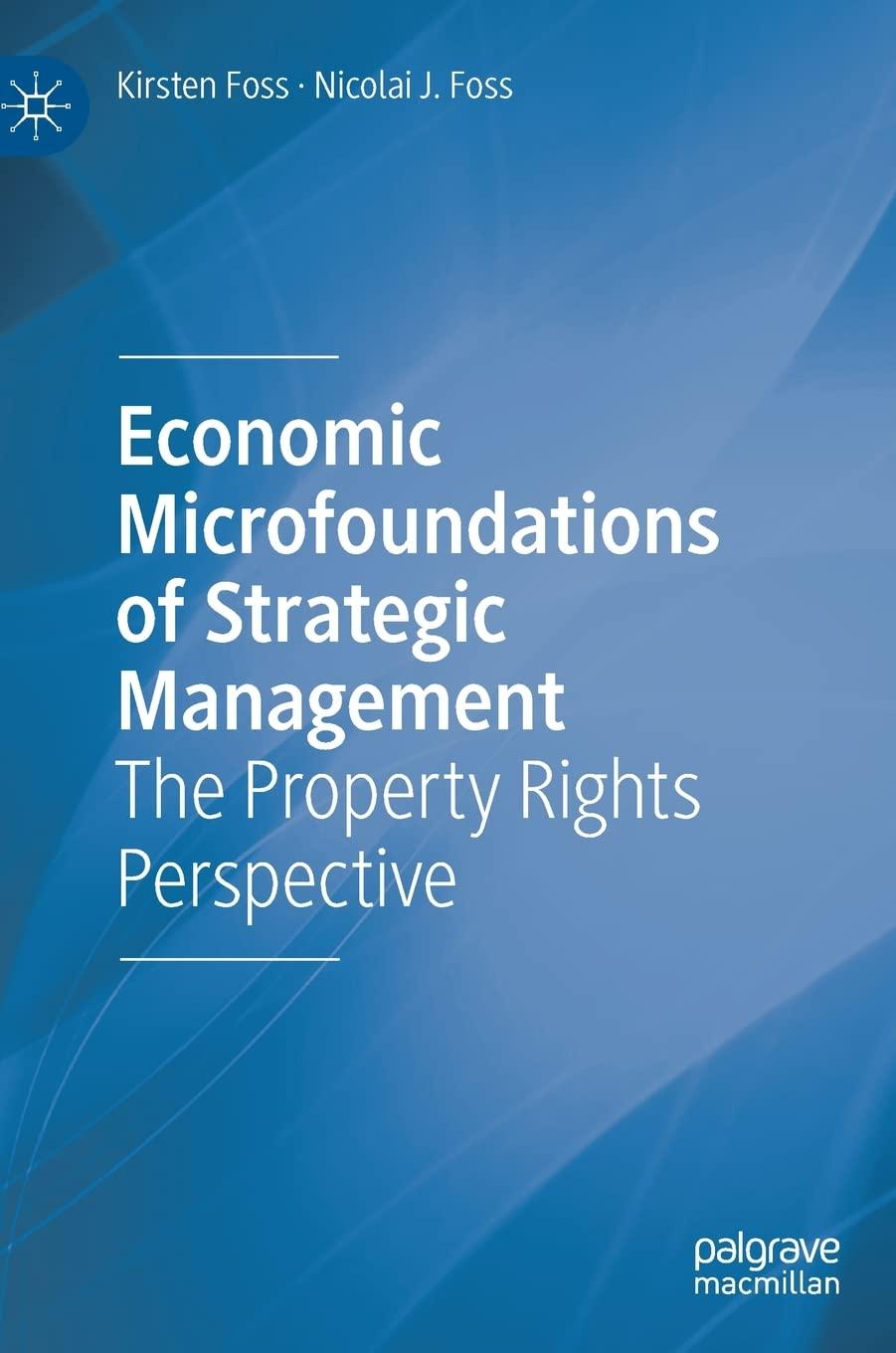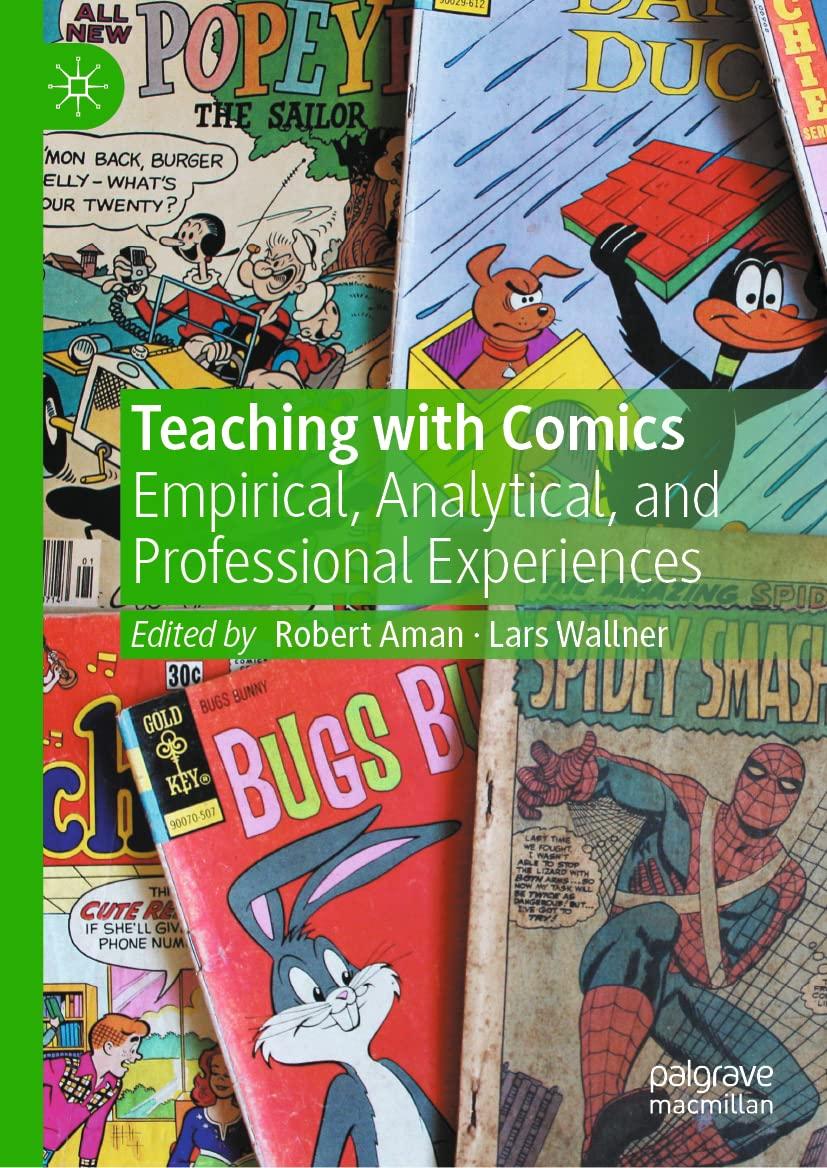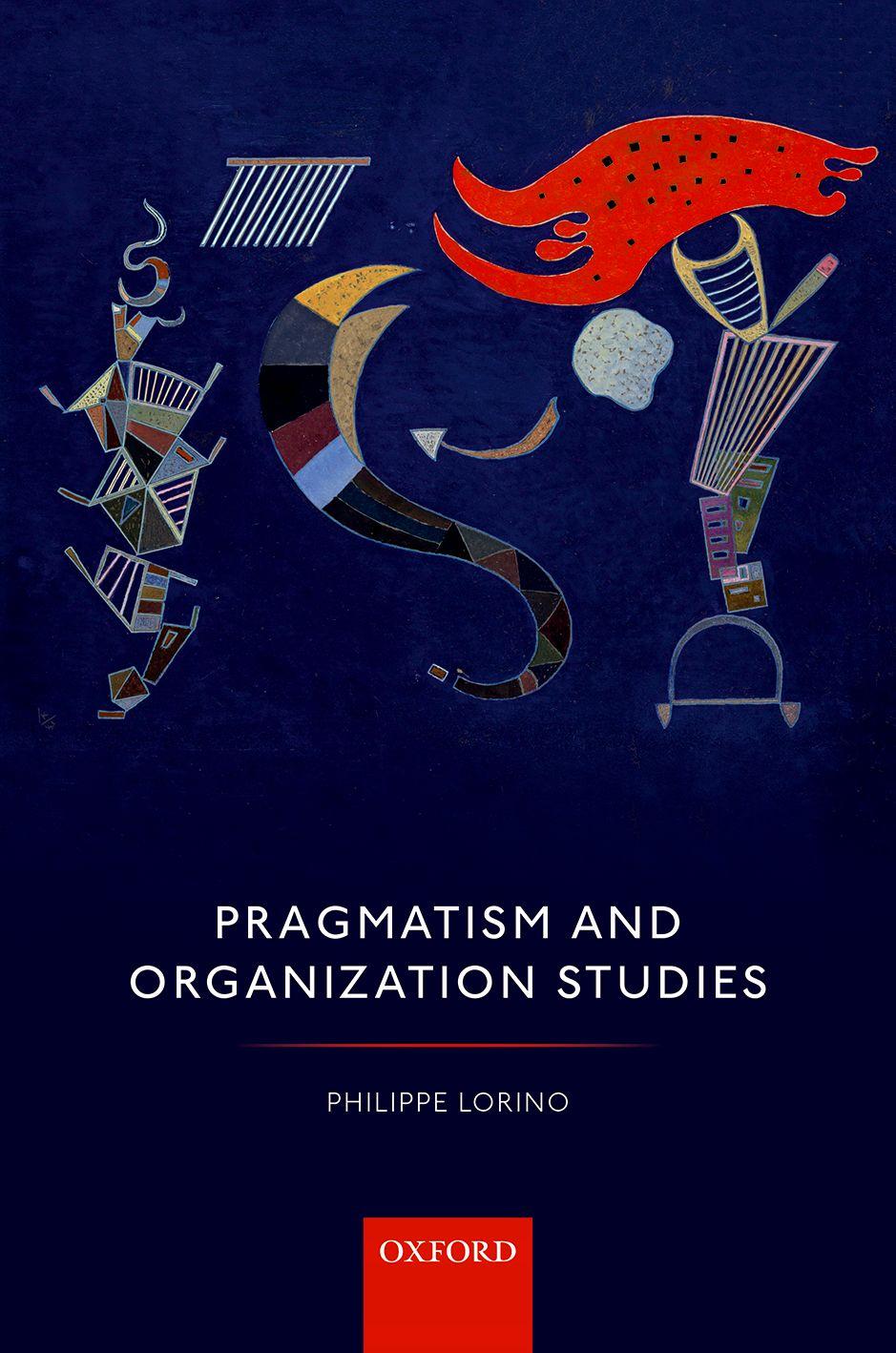https://ebookmass.com/product/pragmatism-and-organization-
Instant digital products (PDF, ePub, MOBI) ready for you
Download now and discover formats that fit your needs...
Time, Temporality, and History in Process Organization Studies Juliane Reinecke
https://ebookmass.com/product/time-temporality-and-history-in-processorganization-studies-juliane-reinecke/
ebookmass.com
The Oxford Handbook of Phenomenologies and Organization Studies François-Xavier De Vaujany
https://ebookmass.com/product/the-oxford-handbook-of-phenomenologiesand-organization-studies-francois-xavier-de-vaujany/
ebookmass.com
The oxford handbook of METAPHOR IN ORGANIZATION STUDIES Anders Örtenblad
https://ebookmass.com/product/the-oxford-handbook-of-metaphor-inorganization-studies-anders-ortenblad/
ebookmass.com
Localized Corrosion in Complex Environments 1st Edition
Mike Yongjun Tan
https://ebookmass.com/product/localized-corrosion-in-complexenvironments-1st-edition-mike-yongjun-tan/
ebookmass.com
Positive Affect Treatment for Depression and Anxiety: Therapist Guide
Michelle G. Craske
https://ebookmass.com/product/positive-affect-treatment-fordepression-and-anxiety-therapist-guide-michelle-g-craske/
ebookmass.com
Der Seelenfänger: Die spannende Vorgeschichte zur John Decker Serie. (German Edition) Strong
https://ebookmass.com/product/der-seelenfanger-die-spannendevorgeschichte-zur-john-decker-serie-german-edition-strong/
ebookmass.com
Differential Equations with Boundary-Value Problems 9th Edition Dennis G. Zill
https://ebookmass.com/product/differential-equations-with-boundaryvalue-problems-9th-edition-dennis-g-zill/
ebookmass.com
Nanny For The Dark Elf King Celeste King
https://ebookmass.com/product/nanny-for-the-dark-elf-king-celesteking/
ebookmass.com
Economic Microfoundations of Strategic Management: The Property Rights Perspective Kirsten Foss
https://ebookmass.com/product/economic-microfoundations-of-strategicmanagement-the-property-rights-perspective-kirsten-foss/
ebookmass.com
Teaching with Comics: Empirical, Analytical, and Professional Experiences Robert Aman
https://ebookmass.com/product/teaching-with-comics-empiricalanalytical-and-professional-experiences-robert-aman/
ebookmass.com
PragmatismandOrganizationStudies
Pragmatismand Organization Studies
PhilippeLorino
GreatClarendonStreet,Oxford,OX26DP, UnitedKingdom
OxfordUniversityPressisadepartmentoftheUniversityofOxford. ItfurtherstheUniversity’sobjectiveofexcellenceinresearch,scholarship, andeducationbypublishingworldwide.Oxfordisaregisteredtrademarkof OxfordUniversityPressintheUKandincertainothercountries
©PhilippeLorino2018
Themoralrightsoftheauthorhavebeenasserted
FirstEditionpublishedin2018
Impression:1
Allrightsreserved.Nopartofthispublicationmaybereproduced,storedin aretrievalsystem,ortransmitted,inanyformorbyanymeans,withoutthe priorpermissioninwritingofOxfordUniversityPress,orasexpresslypermitted bylaw,bylicenceorundertermsagreedwiththeappropriatereprographics rightsorganization.Enquiriesconcerningreproductionoutsidethescopeofthe aboveshouldbesenttotheRightsDepartment,OxfordUniversityPress,atthe addressabove
Youmustnotcirculatethisworkinanyotherform andyoumustimposethissameconditiononanyacquirer
PublishedintheUnitedStatesofAmericabyOxfordUniversityPress 198MadisonAvenue,NewYork,NY10016,UnitedStatesofAmerica
BritishLibraryCataloguinginPublicationData
Dataavailable
LibraryofCongressControlNumber:2017946414
ISBN978–0–19–875321–6(hbk.)
ISBN978–0–19–875351–3(pbk.)
Printedandboundby
CPIGroup(UK)Ltd,Croydon,CR04YY
LinkstothirdpartywebsitesareprovidedbyOxfordingoodfaithand forinformationonly.Oxforddisclaimsanyresponsibilityforthematerials containedinanythirdpartywebsitereferencedinthiswork.
AWindingRoadtoPragmatism
ThecoverofthisbookisKandinsky’s1943painting “TheArrow.” Itshows deepconsonancesbetweenKandinsky’sartandpragmatistthought.Inboth cases,humanexperienceisviewedasongoingmovement,materializedinthe picturebythearrow,andemergenceofforms.Kandinsky,thefatherof abstraction,andthepragmatists,severecriticsofCartesianrepresentationalism,advocatenon-representationalsemioticmediationtoexploredisorienting chaosandmake “theconsonanceof ‘tomorrow’” emergefrom “today’sdissonance ” (Kandinsky,1911,p.21).Signsinhabitpragmatistthoughtand Kandinsky’spainting,somerecognizable(arrow,lyra),othersmoreenigmatic, inseparablycombiningwhatpragmatistscall “habit” (familiarexperience)and “inquiry” (exploringdisruptivesituations).
Whypragmatism?Whypragmatismtoday?Perhapsmyownlong,twisting, andturningroadtopragmatismcanshedsomelightontoday’spragmatistturn.
Alongtimeago(inthe1980s),IwasaseniorcivilservantintheadministrationoftheFrenchgovernmentwithabackgroundinmathematicsand engineering.Forseveralyears,Iwasinchargeofcoordinatingpublicpolicies (e.g.researchanddevelopment,education,workregulations)thatdealtwith thetechnologicaltransformationofmanufacturingindustries(e.g.theintroductionofrobotics,computer-aideddesign,computer-integratedmanufacturing,etc.).Duringthismandate,Ibecameconvincedthatthemainobstacle toimplementingnewmanufacturingtechnologiesinbeneficialconditionswas neithertechnical(alltherequiredtechnologieswereavailableonthemarket andproductionengineershadtherequiredcompetences)nor financial(firms hadsatisfactoryprofitratesandinvestmentcapacity),but,rather,organizational:TheFordianformsoforganizationinheritedfromthepastprevented ourtakingfulladvantageofthefantasticpotentialofthe flexibilityand reactivenessaffordedbynewtechnologies.
Atthattime,twocontrastingtendenciespredominatedintheworld ofmanufacturingmanagement andprobablystilldotoday.First,new computer-basedtechnologiesallowedtheamplificationandperfectionof Taylorianprinciplesoforganizationbyreplacinghumanworkerswithautomatedequipment,consideredtobemoreskilledandreliable,asdeclaredbyan advertisementpublishedinatradereviewin1982: “Havingtrouble finding skilledmachinists?Tryaskilledmachine!” (Shaiken,1984,p.53).Whensucha substitutionprovedimpossible,these “newTaylorian” managersusedadvanced
informationtechnologiestodevelopsophisticatedworkmonitoringandcontrol systems.Inanycase,thegeneralprojectwasclear: “The firstindustrialrevolutioninvolvedthetransferofskillsfrommantomachine,andmuchhasbeen accomplishedinthisarea.Thesecondindustrialrevolution,whichisinits infancy,involvesthetransferofintelligencefrommantomachine” (Chern, citedinShaiken,1984,p.60).
Thesecondmanagerialtendency,inspiredbyJapaneseexamples(hencethe label “Toyotism”)andbythemanagerial “qualitymovement,” aimedto maximizethebenefitsofnewtechnologiesbyempowering fieldteams,developinglocalinitiatives,andenhancingemployees’ averageskilllevel,whichwas alreadyfairlyhigherthanatthetimeofFrederickTaylor.Themanagers, industrialleaders,andscholarsdefendingsuchideasusedhumanisticarguments,suchasthepositiveimpactofToyotismprinciplesonthemeaningof work,thelevelofstress,andthequalityoflifeatwork.What’smore,theyalso foundcogentargumentsinthefailuresofmanyambitious,dogmatic,and theory-guidedcomputerizationprojects,whichfellshortoftheir financial goalsandimpactedtheaveragerateofreturnoncapitalinthe firmsconcerned.
Thequestionthenbecame:Whydomanycorporateleadersholdsotightly andsostubbornlytoorganizingprinciplesthatfail?Whydon’ttheylistento expertssuchasDemingorJuran,whocriticizedTaylorianorganizationsand claimedthatadvancedtechnologieswhenusedbyskilled,autonomous,and motivatedteamsweremuchmorepowerfulthangoodoldvariance-based, meticulouscontrol?Ofcourse,culturalinertiaandconsiderationsofpower playedsomeroleinthis(e.g.theillusionthatmanagerscanhangontotheir traditionalpowerbymaintainingtheirexclusivedecision-makingprerogative).ButIalsoobservedthatorganizationalchoicesweremostoftendictated byadeepandsincerefaithinsupposedlyaccuratemodels,pre-determined “optima,” andartificialsystems.Actually,thetraditional “controlling” viewof managerialthoughtconstitutedapracticalimplementationofrationalistand idealistviewsoftheworld,inthephilosophicalsenseof “rationalism” and “idealism,” asillustratedbyPlatoandDescartes(andstronglycriticizedbythe classicalpragmatistsPeirce,James,Dewey,andMead,asIwouldrealizelater). Themanagerialdebateappearedtometobeafundamentallyintellectualone, evenifitwasoftenconcealedbytechnicalpseudo-truths.
Forexample,economicevaluationsystems,whichclaimedtobe “scientific, ” wereactuallyconveyingandinvisiblyimposingFordianorganizational models.Standardcostingmirroredthefunctionalorganizationofspaceand power,thatis,thegroupingofhomogeneousoperationsinthesameroom underthesameauthority.Budgetandvariance-basedcontrolnaturalizedthe ideathatthefutureisthecontinuationofpasttrends.Inassumingthatfuture scenarioswouldatleastconformtoprobabilisticmodels,investmentplanning basedonprofitoptimizationdiscardedthefundamentaluncertaintyofmarkets,technologies,andsocieties.Managementaccountingassumedthatthe
onlysignificantcostdriverwasthevolumeofproductionandsales,and ignoredthegrowingcostofcomplexity.
Ibecamemoreandmoreinterestedinthelinkbetweenmanagement techniquesandorganizationalforms.Iwasparticularlyfascinatedbythe systematicobliterationofrealsituatedactivity,andmorespecifically,collectiveactivity,ignoredorconfusedwithformallydescribedtasksinthemainstreammanagerialculture,butalsoinalargepartoforganizationand managementresearch.In1989 Iwasbythenworkinginamanufacturing company IpublishedabookinwhichItriedtoshowthatorganizational archetypesaredeeplyrootedinsupposedly “scientific ” managementtools. Akeyfeatureofthesearchetypeswastheignoranceofcollectivepractical experienceandtheidentificationofso-called “organization,” asasocial structureandaspecificareaofknowledge,withtheproductionofformal andstaticmodels.Itriedtoconvincemanagersandscholarsthat “performance ” wasnota “scientificmeasurement,” butacontinualcollectiveeffortto understand,throughsystemsofsigns,situatedactivityasacomplex,valuecreatingprocess.Attheendofatalkinauniversity,aprofessorofeconomics askedmeifIknewofCharlesSandersPeirce.Ihadneverheardthename.My colleagueexplainedtomethatmyviewofmanagementtoolingandpractices, inspiredbymyexperienceofmanufacturingautomationandbythe “quality” movementinmanagement,echoedPeirce’stheoryofsignandsignification. Thatwasthebeginningofalong,sometimesdifficultbutincreasinglyexciting explorationofthepragmatistuniverse...
WhythislastingcompanionshipwithPeirce,Dewey,James,Mead,Follett, Lewis,andtheirmorerecentcontinuators?Actually,pragmatismbroughtme themaincontributiononecanexpectfromtheory:Ithelpedmetounderstand thesituationsIwasexperiencing inparticular,thecomplexones andto engagethisunderstandinginlaterexperience.Overtheyears,Icontinually wentbackandforth,fromdoing fieldresearchinsuchareasasevaluation systemsornuclearsafetymanagementtodeepeningmystudyofthepragmatistframework.Strangelyenough,ittookmetwentyyearstorealizethat therewasactuallyastronglinkbetweenthequalityandcontinuousimprovementmanagerialcirclesandthepragmatistphilosophers.Around2012, IdiscoveredthatShewhartandDeming,thepioneersofmanufacturingquality andcontinuousimprovement,hadbeendisciplesofpragmatistphilosophers. Thestrangeloopisthencompleted:Itravelledfrommanagementtopragmatistphilosophythroughcontinuousimprovementpractices,whilepragmatist ideashadtravelledfromphilosophytoorganizationmanagementthroughthe samecontinuousimprovementpractices...
Ithinkthattodaythekeypragmatistconceptsandmethods suchas semioticmediation,habit,inquiry,dialogicaltransaction,abduction,valuation,andprocess aremoretopicalandnecessarythanever.Pragmatist theseshavebeenneglectedforsometimeintheworldoforganizationsand
management.Theillusionofpredicting,planning,controlling,accurately modelling,eliminatingrisk,andthetriumphofcognitivismhavelured scholarsandmanagersfortoolongintoacertaintythatisoftenmisleading. Therehasbeenahighpricetopayforsuchdeceptiveandmisplacedassurance: ineffectiveefficiency(doingthewrongthingstherightway);meticulous controlofmisunderstoodrisks;disdainofactors’ invaluableexperience;stress, despair,andlossofmeaningatwork;opacityandunethicalbehaviors.Today thefantasticdevelopmentofinformationandcommunicationtechnologyhas adarkside:Itmightverywellrenewsuchoverconfidenceintechnicalsystems andtheresultingunderestimationoforganizationalandsocialcomplexity. Longago,pragmatistauthorsfocusedtheirreflectionontheinherentmobility, uncertainty,andcomplexityofsocialissues,andwithanincrediblelucidity. IagreewithBernstein(2010,p.9)that “Peirce,James,DeweyandMeadwere reallyaheadoftheirtime,” intheirradicalcritiqueoftheillusionsanddangers ofidealismandrationalism,whichpavethewayfordogmatism.Thisiswhy Ibelievetheirstudyistobestronglyrecommendedtocontemporaryscholars andmanagersinthekingdomoforganizations.
Theirphilosophicalandsemanticrigormayhavesometimescomplicated theirstyleandtheaccessibilityoftheirthought.ThisiswhyIfoundituseful andtimelytowritethissynthesisofthepragmatistcontributiontoorganizationstudies,withanextensiveuseofexamplesandcases,tomakeseemingly difficultconceptseasiertograspandtohighlighttheirpracticalsignificance. Tosomeextent,themethodadoptedinthisbookfollowsthepragmatist methodologicalview,bycontinuallymovingbetweenempiricalcasesand concepts.MostcasesarebasedonsituationsthatIpersonallyexperienced. Eveniftheyareusedinthebooktocommentonsomespecificthemeandthus areanalyzedunderaparticularpointofview,mostofthemcouldequallyhave beenusedtoillustrateotherconceptsandthemes.Reallifesituationsgenerally donotfollowapurethematicline...
Thisbookalsofollowsthepragmatistmethodologicalguidelinesfrom anotherpointofview:Itadoptsanopenandpluralistapproachtopragmatism.Inmypractical-theoreticaladventure,pragmatismwasnotmyonly reference.Ialsobecameacquainted,forexample,withactivitytheory(e.g. Vygotsky,Leontiev),ethnomethodology(e.g.Garfinkel),developmentsabout sociomateriality(Latour,Suchman),orGoffman’stheoryofframes.Pragmatismwasneitheranisolatednorahomogeneousstreamofthought.Itwas influencedbyotherintellectualmovements,suchasDarwinianevolutionism, anditinfluencedotherstreamsinsocialscience,educationscience,psychology,philosophy,logics,legalandpoliticalstudies.Therefore,inaccordwith thepragmatistpluralistandtrans-actionalconceptionoflearningandsearching,thisbookgivesasignificantspacetoothertheories,whentheyshow meaningfulconvergencesor,conversely,meaningfuloppositionswithpragmatism,withoutanyclaimtoexhaustivity.Thisisthecase,forexample,of
“adjacent” theorieswhicheitherexplicitlyreferredtopragmatistauthorsor showedstrikingsimilaritieswiththem,evenwhentherewasnoclearhistorical recordthatauthorscrossedpathsorreadeachother’swork.
Pragmatistsemiotics(e.g.UmbertoEco)explicitlyreferstoPeirce’stheory ofthesignandthepragmatistconceptsofinquiryandabduction.Concerning ethnomethodology,althoughitsfounder,HaroldGarfinkel,sometimescriticizedthepragmatistauthors,Ithinkitexploressomeofthepragmatisttheses, suchasthe “callforareturntoexperience” orthe “ideathatobstaclesin experiencegiverisetoeffortsatcreativeproblem-solving” (Emirbayerand Maynard,2011,p.221).
Thecultural-historicaltheoryofactivitydevelopedbytheRussianpsychologistsVygotskyandLeontievatthebeginningoftwentiethcenturyisanexample ofstrikingconvergenceswithpragmatism(inparticularwithG.H.Mead) (Glock,1986;Koczanowicz,1994;Engeströmetal.,1999),thoughtherewas apparentlynocontact: “L.S.VygotskywaslikeMeadinviewingselfasacomplex emergentphenomenoncontinuallyproducedinandbyindividualsintheir interchangeswithothersandwiththeculturallytransformedmaterialworld. Thetwotheorists...weresimilarlyinterestedinthewaysinwhichsocialinteraction,mediatedbysymbolicforms,providedcrucialresourcesandeverpresent constraintsforself-making.Theyemphasizedactiveinternalization,internalized self–otherdialogues,and,intheirrespectiveways,paidattentiontothesemiotics ofbehavior” (HollandandLachicotte,2007,p.105).
Bakhtin’sconceptofdialogismisanotherexampleofobviousresonance withpragmatism,inparticularwithDewey: “Dewey’stransactionaltheoriesaresimilartoBakhtin’sdialogisticposition” (Davidson,1993,p.13),but alsowithJames: “Bakhtin’sattemptstoovercomethedualistseparation betweenthoughtandsingularandsituatedexperience(is)highlyreminiscent ofWilliamJames’ syntheticconceptionofpragmatism” (Eskin,2000,p.69). ForMcCarthyandWright(2007), “apragmaticreadingof(Bakhtin’s)workis warrantedbyhiscommitmenttoknowingasapracticalprocess,apluralityof perspectives,andhistoricityinthinking” (p.55).
ThebookalsoestablishesconnectionsbetweenpragmatismandActor NetworkTheory(ANT),inparticularBrunoLatour,whostartedfroma differenttheoreticaltradition,inparticularGreimas’ structuralistsemiotics andFrenchsociology,butgraduallygotclosertopragmatismandDewey’ s conceptofinquiry.Theverytitleofhis2013book: AnInquiryintoModesof Existence AnAnthropologyoftheModerns referstotheconceptofinquiry (Latour,2013b).Inaninterviewhegavetothedailynewspaper LeMonde,he asksformoreinnovativepoliticalpracticesandreferstoDewey: (Latour)Today[politicalleaders]imaginetheycanproducethecommongood,the generalwill,withoutthesocialsciencesandwithouttheinquiry!HowdoIexperiment then...,withwhatinstruments?
(LeMonde)Whatrolecansocialsciencesplayinthisreturntoinnovation? (Latour)Itissimplyimpossibletodoanythingwithoutthem.They amongstother elements arewhatassuresthenecessarycapacitytoprobe,toproducepublicwillin situationsthatbecomemoreandmorecomplex.ThereforeIwouldsay,asagood pragmatist,thatorganizingthattypeofprobing/testingistheverydefinitionofpublic life.Ifyoufollowthegreatmastersofpragmatism,forexampleJohnDewey,weneed thepoliticalspherepreciselybecausewedonotknowtheconsequencesofouractions. (Latour’sconcludingwords).Wemust findothertypesofcollectiveintellectualwork; aboveall,giveadifferentattentiontotheinquiry.(Latour,2013a,mytranslation)
PragmatismwasbornasaradicalcritiqueofCartesianidealismanditskey theses:dualism,representationalism,andabstractionfromexperience.ThereforeIfeltitimportanttoanalyzetherelationshipbetweenpragmatismanda veryinfluentialtheoreticalstreamthatperpetuatestheCartesiantraditionin organizationstudies:cognitivism(HerbertSimon),anditsmajorconcepts (boundedandproceduralrationality,computationalapproachtothought, artificialism,routines).Alongthesamelines,Ialsotriedtoexaminefroma pragmatistperspectivesomeimportantorganizationtheories(routines, organizationallearning,sharedness,organizationalknowledge)thathave,at leastinsomephasesoftheirhistoricaltrajectory,referredtocognitivism.
Afterahistoricalintroduction(Chapter1),thebookpresentsthekeyconceptsofpragmatismandtheirpotentialrelevancefororganizationresearch: mediation(Chapter2),habit(Chapter3),inquiry(Chapter4),trans-action (Chapter5),communityofinquiry(Chapter6),abduction(Chapter7),and valuation(Chapter8).Thecloserelationshipbetweenpragmatismandthe processualperspectiveonorganizationsisanalyzedinChapter9andthehistoricalimpactonmanagerialideasandpracticesinChapter10.
Withthisbook,IhopetosharewhatIhavelearntfrompragmatistauthors withalargenumberofscholarsandmanagers:theirvigorouscontributionto someofthemostdebatedthemesintheareaoforganizationandmanagement studies,and,moregenerally,theirconvincingandusefulcritiqueofdualism, staticabstraction,andidealism.
■ REFERENCES
Bernstein,R.J.(2010). ThePragmaticTurn.Cambridge,UK,andMalden,MA:Polity Press.
Davidson,J.(1993). BakhtinasaTheoryofReading.Technicalreportno.579. UniversityofIllinoisatUrbana-Champaign. Emirbayer,M.,andMaynard,D.W.(2011).Pragmatismandethnomethodology. QualitativeSociology,34,221–61.
Engeström,Y.,Miettinen,R.,andPunamäki,R.-L.(1999). PerspectivesonActivity Theory.Cambridge,UK:CambridgeUniversityPress.
Eskin,M.(2000). Ethicsanddialogue:IntheWorksofLevinas,Bakhtin,Mandel0shtam, andCelan.Oxford:OxfordUniversityPress.
Glock,H.-J.(1986).VygotskyandMeadontheSelf,meaningandinternalisation, StudiesinSovietThought,31(2),131–48.
Holland,D.,andLachicotte,W.,Jr.(2007).Vygotsky,Mead,andtheNewSociocultural StudiesofIdentity.InH.Daniels,M.Cole,andJ.V.Wertsch(eds.) TheCambridge CompaniontoVygotsky.Cambridge,UK:CambridgeUniversityPress,pp.101–35.
Kandinsky,W.(1984).LettertoSchönberg,January18,1911,inJ.Hahl-Koch(ed.), ArnoldSchoenberg/WassilyKandinsky:Letters,PicturesandDocuments.London: Faber&Faber.
Koczanowicz,L.(1994).G.H.MeadandL.S.VygotskyonmeaningandtheSelf, JournalofSpeculativePhilosophy,8(4),262–76.
Latour,B.(2013a).Interviewgiventothedaily LeMonde (Paris),September22–23.
Latour,B.(2013b). AnInquiryintoModesofExistence AnAnthropologyofthe Moderns,transl.C.Porter.Cambridge,MA:HarvardUniversityPress.
McCarthy,J.,andWright,P.(2007). TechnologyasExperience.Cambridge,MA:MIT Press.
Shaiken,H.(1984). WorkTransformed:AutomationandLaborintheComputerAge. NewYork:Holt,Rinehart&Winston.
■ ACKNOWLEDGMENTS
ESSECBusinessSchoolhasbeenformeafavorableworkplacetodevelop reflection.Thesupportreceivedfrommycolleaguesandfromtheinstitution ensuredtheserenityandintellectualstimulationrequiredbythedemanding taskofwritinganacademicbook.
IwishtorememberandhonorthememoryofMichaelCohen,agreat scholarandawonderfulperson,whoknewsomuchaboutJohnDeweyand thehistoryofideas.Hisrespectfulwayofconversingwithcolleaguesandhis refinedanalysessignificantlyenrichedmyapproachtopragmatism.
IowespecialthankstomyfellowpragmatistBarbaraSimpson,withwhom IhadthepleasuretoconvenepragmatistsubthemesatEGOS(European GroupforOrganizationStudies)annualcolloquiumonthreeoccasions,in 2007,2009,and2011,andtoco-authorbookchapters.Mycollaborationwith heraboutthecontributionofpragmatismtothestudyoforganizationshas beenanimportantsourceofreflectionforme.Thiswasalsothecaseofmy exchangeswithMosheFarjounandTorHernes,whomaderelevantanduseful suggestionsforthisbook.
IamgratefultomyformerandpresentPh.D.students,manyofthemnow colleaguesandco-authors,whoseresearchhasdeeplyinfluencedandnourishedmyownreflection:Diane-LaureArjaliès,BernardBlanc,PierreGhelardi, YvesHabran,AnjaKern,MarieKerveillant,AzizaLaguecir,DamienMourey, MichelPaillet,BenoîtTricard.
IcouldhaveneverwrittenthisbookwithoutthehelpofmyEnglisheditor, StephanieFox,whonotonlyimprovedtheEnglishstyle,butalsomade precioussuggestionsonthesubstanceofthetext,showingherdeepinterest forpragmatistthought.Shehelpedmewithmuchpatience,commitment,and care.Ireallyfeelgratefultoher.AnnGallon,aseffectiveasusual,also contributedtothatediting.
Iwasinspiredbytheinsightfulreactionstomypresentationsandmore generallythestimulatingdiscussionsthattookplaceintheProcessOrganizationStudiesinternationalsymposia,heldeachyearontheGreekislands. IwishtothankinparticularthesymposiaconvenersAnnLangleyandHari Tsoukas,greatorganizersandgreatresearchers.AmongstthemanysymposiumparticipantswithwhomIhadtheprivilegeofexchanging,Iwishto mentionRobertChia,MosheFarjoun,JennyHelin,TorHernes,Daniel Hjorth,RobinHolt,MuayyadJabri,CarolineRamsey,JohnShotter,Jaan Valsiner,HaraldTuckermann,MikeZundel,andsomanyothersthatIcould notreasonablynamethemall!
Researchonorganizationsisindeedhighlydialogical:Ilearntalotfrommy discussionswithorganizationscholars,atStanfordUniversitywithJames March,inTrentoandmanyotherplaceswithSilviaGherardiandAntonio Strati,inMontrealwithAlaricBourgoin,PatrickCohendet,HélèneGiroux, SylvainLandry,AnnLangley,andLindaRouleau,andallovertheworld, withChristopherAnsell,JustineArnoud,Marie-JoséAvenier,DenisBayart, EmmanuelleBégon,ChristopheBelleval,BoBergman,FrançoisCooren, Marie-LaureDjelic,HervéDumez,BenteElkjaer,VincentGenestet,Jaume Guia,AnthonyHussenot,BenoîtJourné,HervéLaroche,Jean-LouisLe Moigne,PhilippeMairesse,ChristinaMauléon,ÉtienneMinvielle,Fabian Muniesa,DavideNicolini,Jean-ClaudePeyrolle,ClausRerup,DanielRobichaud, AnnaRylander,RonSanchez,RégineTeulier,EeroVaara,andFrançois-Xavier deVaujany.
Myapproachtoorganizationswasenlightenedbymycollaborationwith researchersinotherareas.Inmyoriginal fieldofmanagementaccounting, Ihadoccasionstodiscusssuchconceptsasmediation,valuation,orthesociomaterialityofmanagementtoolingwithmanycolleagues,inparticularwith AlainBurlaud,EveChiappello,AlanLowe,PierreMevellec,JanMouritsen, YeshNama,RobertScapens,andWaiFongChua.Ialsohadfruitfulcollaborationsinthe fieldofthepsychologyandsociologyofwork,ergonomics,activity analysis,andeducationsciences.MydearlyregrettedfriendLeonardoPinsky mademediscoverergonomics.IamalsogratefultoYvesClot,aninsightful defenderofVygotsky’sactivitytheory,withwhomIcouldpracticecrossdisciplinary fieldresearchandIhadthrillingexchanges.Ienjoyeddiscussions withAlexandraBidet,StephenBillett,FrançoisDaniellou,PierreFalzon, LaurentFilliettaz,FrançoisJeffroy,FlorenceMotté,PierreRabardel,Jacques Theureau,ManuelZacklad,andwiththecolleaguesofHelsinkiCenterfor ResearchonActivityDevelopmentandLearning(CRADLE),whogaveme awonderfullywarmwelcomewhenIspentasabbaticalwiththem,more particularlyYrjöEngeström,AnuKajamaa,HanneleKerosuo,ReijoMiettinen, andJaakkoVirkkunen.Ialsoowespecialthankstothemanagersandthetrade unionmemberswithwhomIcouldexchangeideasandcollaborateforthe concretetransformationoforganizations,theso-called “practitioners” who,in manycases,areactuallygreatthinkersoftheirprofessionandtheiraction,in particularintheConfédérationFrançaiseDémocratiqueduTravail(CFDT), andinEDF,hospitals,InstitutdeRadioprotectionetdeSûretéNucléaire (IRSN),Orange,Renault,andsocialhousingagencies.
Lastbutnotleast,Igivemyveryspecialthankstomywife,Beatrice,who hadtowithstandmystressandmymonasticretreatforalmosttwoyears.She notonlyborethisratherpeculiarlifestylebutsheevendidherbesttosupport me,andgetacquaintedwithmypragmatistfriendsandfrequent “visitors” Peirce,James,Dewey,andMead...
1Historicalperspective:ThePragmatistadventure,fromanti-Cartesianism toanti-Taylorism... 1
1.1TheMetaphysicalClub(1872):Theoriginsand firststepsofpragmatism2
1.2The fightagainstCartesianidealism 5
1.3Themain figuresofclassicalpragmatism:Peirce,James,Dewey,andMead6
1.4Aneraofdecline:fromPragmatismtopragmatism15
1.5WalterShewhart:Theanti-TaylorianexplorationattheHawthorne Works(1924) 18
1.6Fromthelinguisticturntothepragmaticturn:RortyandPutnam22
2Semioticmediationattheheartoforganizing:Questioningthe representation/realitydichotomy 27
2.1Therepresentationalistmainstreamoforganizationstudies28
2.2Twomassdistributioncompanies:Adifficultlogisticintegration33
2.3Strugglingforworksafetyinabuildingcompany36
2.4Discussionofthecases:Thepragmatistcritiqueofrepresentationalism38
2.5Thepragmatisttheoryofsemioticmediation40
2.6Thepragmatistbasisofthemediationconcept:Thirdnessandtriadicsign43
2.7Semioticmediation:Thegatetotemporalityandsociality48
2.8Reassessingsociomateriality 51
2.9Conclusion:Signsinsinuateghostsintoorganizationalsituations54
3.1Fromtheactionaltotheinformationalparadigmoforganization: Ahistorical “drama” 60
3.2Twocases 66
3.3Thepragmatistfocusonactionandmeaning69
3.4Thepragmatisttheoryofhabit 72
3.5Revisitingthetwocases 81
3.6Activityasacollectivediscourseexpressedinthelanguageofhabits83
3.7Someconvergenceswithothertheoreticalframeworks87
3.8Conclusion 88
4Inquiry:Theprocessofthinking,acting,andmediating
4.2Searchingforperformanceinthecardiologydepartmentofahospital95
4.3Thepragmatistdefinitionsofinquiry:Belief,doubt,andsituation101
4.4Inquiringversuscontrollingandproblem-solvingframeworks:In searchofaproblem 105
4.5Inquiringasasocialprocess:Thecommunityofinquiry108
4.6Fromthe “mind first” dualism(thoughtversusaction)to thought/actionintegration 109
4.7Theinquiryinvolvesthreetypesofinference:Abduction,deduction, induction 111
4.8Theinquiryismediatedandmediating116
4.9Methodologicalandmanagerialimplications118
4.10Conclusion:Habitandinquiry,arecursivetheoryofaction119
5Trans-action:Beyondtheindividual/collectivedualism,thedialogical
5.4Thepragmatistdialogicalandtrans-actionalapproachtosociality133
5.5DeweyandBentley’stheoryoftrans-action139
5.6Thetrans-actionalapproachtosociality149
6.2Casestudy:Communitiesofinquiryandcommunitiesofpracticeat
6.3Classicalpragmatismandcommunitiesofinquiry167
6.4Twotypesofsolidarity,twotypesofcommunity173
6.5Communitiesofprocess,activitysystems,andsharedconcerns177
6.6Managerialapplicationsofthepragmatistapproachtothe communityofinquiry
7.4Thecasestudy:Re-inventingurbanplanning200
7.5Discussionofthecase:Fourkeycharacteristicsofthetestedprocess207
7.6Abductionintheorganizationalworld212
7.7Conclusion:Thesocialprocessofabductionfabulatesthe collectivefuture
8Valueandvaluation
8.1Introduction
8.2Fourshortstoriesofvaluation
8.3Fromdualistvaluetopragmatistvaluation231
8.4Thevaluationprocessismediatedbyvaluationtools240
8.5Conclusion:Whatisatstakeinthepragmatistapproach tovaluation?
9.2Theprocessturninorganizationstudies255
9.3Sixquestionsraisedbytheprocessapproachtoorganizations257
9.4Pragmatism:Aprocess-orientedthought262
9.5Theprocessoforganizinginthelightofpragmatistanalyses273
9.6Conclusion:Somemanagerialandmethodologicalimplications282
10.2MaryParkerFollett, “prophetofmanagement”
10.3ChesterBarnard:Cooperationandauthority293
10.4DonaldSchönandreflection-in-action294
10.5ActionresearchandtheTavistockInstitute295
10.6Thepragmatistsourcesofqualityand “lean” management296
10.7Theoriginalfeaturesof “leanmanagement” inspiredbypragmatism303
10.8Thecallcentercase 308
10.9Dominantpracticesof “lean” managementtoday:BacktoTaylorism311
10.10Conclusion 317
■ LISTOFFIGURES
2.1 Thetriadicsign
2.2 Theintersubjectivistviewofthetriad49
2.3 ThePeircianviewofthetriad 49
3.1 CALVINANDHOBBES©1992Watterson.Reprintedwith permissionofUNIVERSALUCLICK.Allrightsreserved59
3.2 Semiosisandaction 70
3.3 Habitasaninterpretantoftriadicsigns76
3.4 Habitcombineswithotherhabitsandsocializesactivityintwoways86
4.1 Inquirytransformsdoubtintobelief102
4.2 Inquirytransformsanindeterminatesituationintoareunifiedwhole103
4.3 Theelementsoftheinquiry 112
4.4 Inquiriesmediateratherthancontainotherinquiries121
5.1 Theexchangebetweenfunctionalperformanceimprovementplans leadstoanewstrategicvision
7.1 Thesequentialviewoftheprocess
7.2
7.3
8.1 Threetypesofsigns
9.1 IconicmediationsinthemetroofMexicoCity:Stationsymbolsdonot realisticallyreplicatetheplace,buttheymimeticallyrepresentsome attributeoftheplace,culturallyrecognizable261
9.2 Thetriadicunitofanalysisoforganizingprocesses281
10.1 FromPDSAbacktoTaylorianPDCA302
■ LISTOFTABLES
2.1 Representationalismversussituatedactionframeworks33
2.2 LogisticperformanceatPromodèsandCarrefour36
7.1 Towardsanewprocess 203
8.1 Maincharacteristicoftheevaluationissuesinthefourcases230
9.1 Pragmatistresponsestothesixkeyquestionsabout theorganizingprocess 283
10.1 “Lean” atEURELECversushistorical “lean”
1 Historicalperspective
ThePragmatistadventure,from anti-Cartesianismtoanti-Taylorism...
Letusstartthisbookwithsomestoriesfromtwodifferentspheres,intellectual lifeandmanagerialpractices,tobetterunderstandthelongermovementof ideas,theirmigrationsfrom fieldto fieldandtheparticularrolepragmatism hasplayedinthehistoryoforganizationstudies.
January1872:inCambridge,Massachusetts,agroupofintellectualsdecides toestablishaphilosophicaldiscussionclubwhichtheycall inaformofirony tochallengetheidealisttraditionofEuropeanphilosophy theMetaphysical Club.Foraboutayear,theymeetapproximatelytwiceamonthanddiscussall kindsofphilosophicalissues.Noneofthemisacademicallytrainedinthe disciplineofphilosophy,butitispreciselypartoftheiraimtoquestion theacademictraditionofEuropeanphilosophyandinventanewphilosophy rootedintheexperienceoflifefortheyoung,burgeoningAmericansociety.
May16,1924:AttheWesternElectricCompany’sHawthorneWorks,a fewmonthsbeforethefamousHawthornestudiesofhumanproductivity,a youngengineernamedWalterShewharthandshisboss,GeorgeEdwards, aone-pagememowhichwillmakehistoryinindustrialmanagement.The HawthorneWorks,whichmanufacturestelephoneequipmentintheChicago suburbofCicero,isthecompany’smainplant.Shewhart’sdocumentconsists ofadiagramandashorttext.Itsetsforth “alloftheessentialprinciplesand considerationswhichareinvolvedinwhatweknowtodayasprocessquality control,” accordingtoEdwards.Infact,itsreachisevenbroader,sinceit establishessomeofthefoundingprinciplesofqualitymanagement,conceived asananti-Taylorianmanagerialrevolution.
Whatlinksthesetwoevents?Pragmatism.Pragmatism,ananti-Cartesian revoltbyamateurphilosophers,andamajorinspirationforanti-Taylorian managerialthought.
Thischapterstartsbyexaminingtheearlydaysofthepragmatistmovement:theMetaphysicalClubexperiment(Section1.1),anditsanti-Cartesian fight(Section1.2).Itthendescribesthediffusionandgrowinginfluenceof classicalpragmatisminthe firstdecadesofthetwentiethcentury,sketchinga portraitofthefourmajor figuresofthatdevelopment,CharlesSandersPeirce, WilliamJames,JohnDewey,andGeorgeHerbertMead,whilealsoconsideringthesignificantroleplayedbysomeoftheirclosestfellowtravellers(Josiah
Royce,JaneAddams,MaryParkerFollett,andClarenceLewis)inwidening thepragmatistinfluence(Section1.3).Theambiguityofpragmatism’ ssuccess, partlyowingtomisunderstandingsandcaricaturesofitscentraltenets,ledto itsdistortionandvulgarizationintothecommonlanguageunderstandingof “pragmatism” (asearchforpracticalsuccesswithoutanyfoundingprinciple) andcontributedtoitsrelativedeclineintheintellectualandphilosophical field (Section1.4).Preciselyatthetimeofthisdecline,fromthe1930sonwards, pragmatismrathersurprisinglybegantoinspireananti-Taylorianmanagerial movement(Section1.5).Section1.6brieflynarrateshow “thepragmatist turn,” aspectacularrevivalofpragmatistideas,tookplaceinthelastquarter ofthetwentiethcentury,thankstotheeffortsofsuchthinkersasRichard Rorty,HilaryPutnam,andHansJoas.
1.1 TheMetaphysicalClub(1872):Theorigins and firststepsofpragmatism
IntheaftermathoftheAmericanCivilWar(1861–1865),inJanuary1872in Cambridge,Massachusetts,adozenHarvardgraduatesdecidedtoforma groupforinformalphilosophicaldiscussions(Menand,2002): “Itwasinthe earliestseventiesthataknotofusyoungmeninoldCambridge,calling ourselves,half-ironically,half-defiantly, ‘TheMetaphysicalClub’ , foragnosticismwasthenridingitshighhorse,andwasfrowningsuperblyuponall metaphysics usedtomeet,sometimesinmystudy,sometimesinthatof WilliamJames” (Peirce,1998,p.399).ThemembersoftheClubincludedtwo novicephilosophers,CharlesSandersPeirce,aged32,alogicianandmathematician,andWilliamJames,aged30,apsychologistandgraduateofHarvard medicalschool;andtwophilosophicallyinclinedlawyers:thefutureSupreme CourtJusticeOliverWendellHolmes,then31,andNicholasSt.JohnGreen, 42,namedthe “grandfatherofpragmatism” byPeirce.Theoldestmemberof thegroup,acknowledgedbytheothersastheirmaininspiration,wasChaunceyWright,alsoaged42. “Philosophy,astheypracticedit,wasnota distinctivelydemarcateddiscipline aFach butemergedfromtheirreflectionsontherangeofhumanknowledgeandactivities” (Bernstein,2010,p.5). Cambridge(Massachusetts)wasthen “agreatcentreofintellectuallife. ...The MetaphysicalClubwasonlyoneofnumerousphilosophicaldiscussiongroups thatspontaneouslyarose.Educatedindividualswithagreatvarietyofinterests (andprofessions)cametogethertopresentpapers,discusstexts,andengagein livelydebates” (Bernstein,2010,p.5).Thegroupmetapproximatelytwicea monthanddidnotlastmorethannineortenmonths,tillDecember1872 whenPeirce, “madeassistantinchargeofgravimetricexperimentsattheCoast
Survey,...moved(withhiswife)toWashington.Theclub’slastmeetingwas evidentlyarrangedtocoincidewiththeirdeparture” (Menand,2002,p.226).
Despiteitsshort-livedandapparentlyinformalexistence,theMetaphysical ClubmarkedaturningpointinAmericanintellectuallife.Peircesummarized hiscontributiontotheClub’sdiscussionsintwoarticlesconsideredtoday asfoundingtextsofpragmatism: TheFixationofBelief (1877)and HowTo MakeOurIdeasClear (1878).Jamespartlybasedhis firstphilosophical essay, RemarksonSpencer’sDefinitionofMindasCorrespondence,published in1878,ontheClub’sdiscussions.TheClubmembers,farfromagreeingonall debatedpoints, “hadhighlydistinctivepersonalities,...buttheircareersintersectedatmanypoints,andtogethertheyweremoreresponsiblethananyother groupformovingAmericanthoughtintothemodernworld” (Menand,2002, prefacep.x).Theysharedageneralrevoltagainsttheabstract,closedsystems ofEuropeanidealism.Theywantedtoreintegratethemovementofthought intothegeneralday-to-daymovementofhumanandsocialexperience.
Thehistoriansofpragmatism(Menand,2002;Bernstein,2010;Misak, 2013b)stateseveralhistoricalfactorsthatmayhavefavoredthisanti-idealist uprisingintheAmericanintellectualcirclesbasedinNewEnglandattheend ofthenineteenthcentury:theinfluenceofDarwin’stheoryofevolution (Darwin’sbook OntheOriginofSpecies hadbeenpublishedin1859,just thirteenyearsbeforetheMetaphysicalClubwasestablished);thestillrecent CivilWar,whichhadendedin1865;andtheparticularitiesofAmericansocial experienceinthateraofrapideconomicandindustrialdevelopment.
Thestillnewtheoryofevolution(Dewey,1910/1951) “embodiedanintellectualrevoltandintroducedanewintellectualtemper” (p.1).TheDarwinian revolutionseemedtothepragmatistsadecisivesteptoquestiontheidealist approachtolifeandnature: “Doubtlessthegreatestdissolventincontemporarythoughtofoldquestions,thegreatestprecipitantofnewmethods,new intentions,newproblems,istheoneeffectedbythescientificrevolutionthat founditsclimaxinthe ‘OriginofSpecies’” (Dewey,1910/1951,p.19).Pragmatistsrejectedtheideaof fixedand finalcategorieswithclear-cutboundaries andemphasizedhumanbeings’ continuitywiththerestofnature.Theyfound supportintheDarwiniannotionofthe “continuityofspecies,” whichpostulatesthatallspeciesarepartofasingle fluidprogressionoflife,withno precise,rigidfrontier,asidealistviewswouldsuggest: “Theclassicnotionof speciescarriedwithittheideaofpurpose.Purposefulnessaccountedforthe intelligibilityofnatureandthepossibilityofscience.Itwas...thecentralpoint oftheisticandidealisticphilosophy.TheDarwinianprincipleofnatural selectioncutstraightunderthisphilosophy” (Dewey,1951,pp.9–11).They rejectedtheidealistfocusonstabilityandpermanencyandagreedwiththe dynamicandprocessualapproachofevolutionism: “Theconceptionsthathad reignedinthephilosophyofnatureandknowledgefortwothousandyears,the conceptionsthathadbecomethefamiliarfurnitureofthemind,restedonthe


